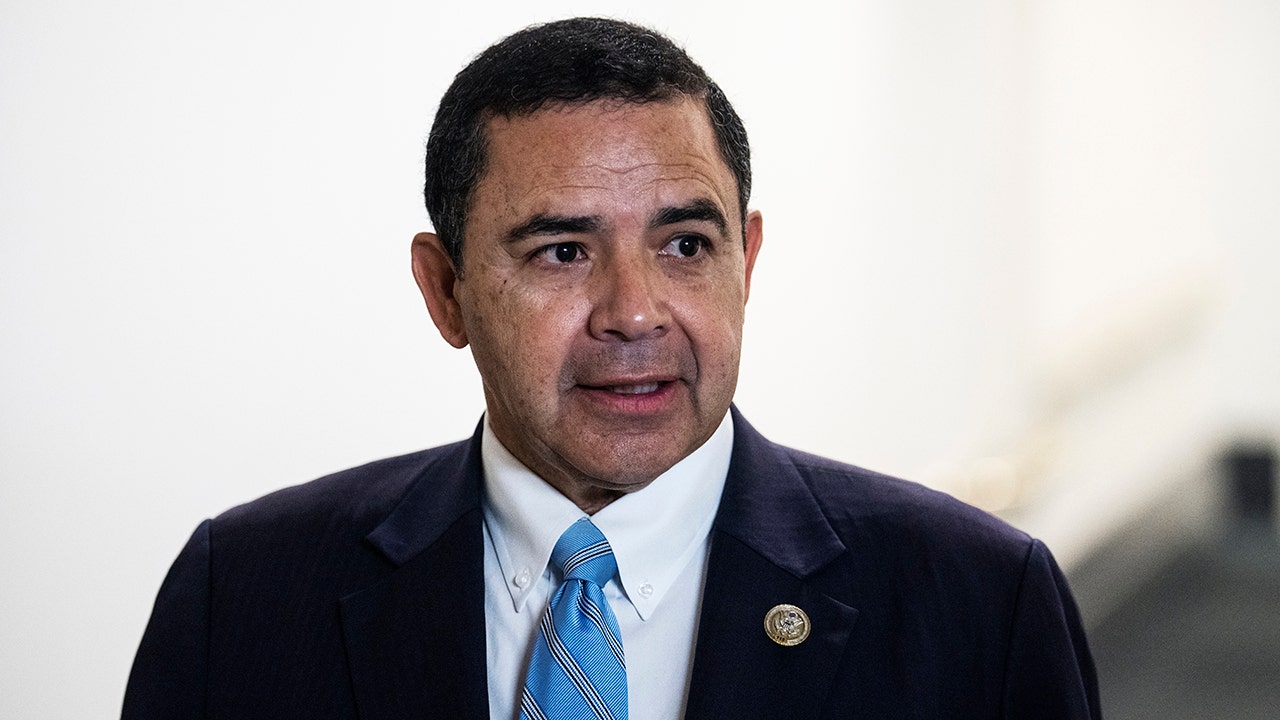Business
Column: The UAW sends a lightning bolt into anti-union states with a huge victory at a VW plant

Until Friday, the phrase “union victory at Chattanooga” could mean only one thing: the defeat of a Confederate army by forces under U.S. Grant at the Battle of Chattanooga in late November 1863.
No longer. On Friday, the United Auto Workers scored a decisive victory at a Volkswagen plant in Chattanooga, Tenn., as workers voted overwhelmingly to organize with the UAW.
The vote looks like a milestone. It was the UAW’s first victory at an auto plant in the Deep South, following two defeats — in 2014 and 2019 — at the same plant. It comes on the heels of the UAW’s success in negotiating impressive new contracts with the Big Three domestic automakers in October.
The real importance of this election is not just the organizing of this factory. It’s that it announces the South is open to unions.
— Labor historian Erik Loomis
The vote opens the door to further votes and organizing drives across the region, where political leaders have kept unions weak in part through anti-union right-to-work laws — all 14 Deep South states, as well as 12 others, have those laws. Next on the schedule is a vote by 5,000 workers at a Mercedes plant in Alabama, scheduled to take place May 13-17.
“The real importance of this election is not just the organizing of this factory,” says labor historian Erik Loomis. “It’s that it announces the South is open to unions…. This has been the greatest struggle for the American labor movement for more than a century. A serious breakthrough in the South is now possible.”
The vote also represents a strong rebuke to the GOP political establishment in the South. Indeed, it turns the history of regional auto worker organizing on its head. In 2014, it may be remembered, Tennessee’s GOP establishment pulled out the stops to discourage workers at the Chattanooga plant from organizing with the UAW.
VW was willing to accept unionization, with an eye toward replicating the labor-management “works councils” common among manufacturing companies at its home in Germany. (“Volkswagen considers its corporate culture of works councils a competitive advantage,” a member of VW’s board had told the Associated Press.)
In response, then-Gov. Bill Haslam threatened the company with retribution, declaring that Tennessee would withdraw incentives for Volkswagen if the UAW was voted in.
Then-GOP Sen. Bob Corker, a former Chattanooga mayor, flew down from Washington to voice an almost certainly specious claim that VW executives had “assured” him that the company would open a new SUV manufacturing line at the plant — if the workers turned the UAW down. A local VW executive disputed that.
With shocking cynicism, Corker co-opted the language of political resistance to discourage workers from voting in the union, stating that if the UAW won the vote, “it’s going to be something we can overcome — we will overcome.”
I marveled at the time that the ghost of Pete Seeger, who had turned a couple of traditional gospel songs into the civil rights anthem “We Shall Overcome,” didn’t rise from the grave and impale Corker on a lightning bolt.
Corker also perverted another protest slogan into an attack on workers by declaring, “the whole world is watching.”
The 2014 organizing campaign failed on a 626-712 vote. After the UAW filed a protest with the National Labor Relations Board over the interference by Haslam, Corker and their cronies, the 2019 revote was held. It was another defeat for the union, but narrower, with 48% of the votes in favor, compared with 46% in 2014.
This time around, the vote was 2,628 in favor versus 985 against — a 72.7% majority.
Early signs that the Chattanooga workers would vote to unionize didn’t stop GOP politicians from trying to place their thumbs on the scale. In a joint statement issued the day before voting began, Tennessee’s current GOP governor, Bill Lee, and the governors of Alabama, Mississippi, Georgia, South Carolina and Texas decried what they hypocritically called “the unionization campaign driven by misinformation and scare tactics that the UAW has brought into our states.”
The governors noted that all three automakers that signed the October contracts with the UAW had announced layoffs since then. That’s true, but it was a lie to ascribe the layoffs to the union contracts: In each case, the companies linked them to an unexpected slowdown in the market for electric vehicles.
What the governors didn’t mention — an inadvertent oversight, you can be sure — several of the non-union foreign automakers with plants in the South, such as Mercedes, Tesla and BMW, all of which are being targeted by the UAW, have also announced layoffs.
Perhaps more to the point, in the wake of the Big Three contract settlements, Toyota, Honda, Nissan and Subaru all announced raises of as much as 11% for their workers — plainly a demonstration that higher pay at unionized companies ripples into the nonunion sector of an industry. All those companies except Subaru have plants in states represented by the governors who issued the statement; Subaru’s only U.S. plant is in Lafayette, Ind.
“In America,” the governors wrote, “we respect our workforce and we do not need to pay a third party to tell us who can pick up a box or flip a switch.” They added, “when employees have a direct relationship with their employers, that makes for a more positive working environment. They can advocate for themselves and what is important to them without outside influence.”
Students of anti-union rhetoric will recognize this spiel as drawn directly from the playbook of intransigently anti-union employers such as Starbucks, including the assertions that union representation is inimical to the smooth operation of a workplace and that unions interfere with the employee-employer relationship.
As almost any experienced worker knows, “direct contact” between the rank-and-file and management almost never works out to the advantage of the workers unless they have the leverage that comes from collective action. The governors’ claim that employees can successfully “advocate for themselves” is virtually pure myth.
The governors also may have failed to read the room, as the saying goes. “The demographics of the South are different than they were 10 years ago,” Loomis told me. “More Latinos and more people moving from the North has been transformational to the South generally — the shift of politics in Georgia due to the expansive growth of Atlanta is one example. Charlotte has become a massive destination for young Black professionals, for another. The South simply isn’t as different from the rest of the nation as it used to be.”
Nor should one overlook the distinct change in labor policies at the federal level. Joe Biden’s stature as possibly the most pro-labor president in American history has been widely noticed. He is the only president to walk a union picket line, as he did during the UAW contract negotiations; he has been sticking with Julie Su, his nominee as secretary of Labor against ferocious opposition from Big Business; and his National Labor Relations Board has fulfilled its role as a guardian of collective bargaining rights.
Whether NLRB oversight of the Chattanooga vote tamped down the company’s efforts to undermine the vote isn’t clear, but it couldn’t have hurt.
The UAW’s success in its contract negotiations may emerge as a powerful argument in favor of organizing at other auto plants. There may be some defeats in the South lurking on the horizon, but there may also be further successes.
It’s worth recalling what happened after Grant’s victory in Chattanooga in 1863. Following the nearly simultaneous Union victories of July 1863 at Vicksburg, Miss., and Gettysburg, Pa., Chattanooga tightened the noose on the Confederacy, opening the door to Sherman’s march to the sea in 1864 and the end of the Confederacy.
Last week’s vote in Chattanooga might, just might, be an equivalent turning point in the long war for worker rights and welfare.

Business
Sony and Apollo make formal $26-billion joint bid for Paramount

Sony Pictures Entertainment and Apollo Global Management have officially put in a bid for Paramount Global, as competition for the storied film and TV company continues to heat up.
Sony and Apollo submitted their $26-billion all-cash offer this week, according to a person familiar with the matter who was not authorized to comment.
Under the terms of the proposed deal, Sony would take a majority shareholder role in the company, with Apollo as a minority shareholder. The joint bid is a nonbinding expression of interest.
The companies do not see regulatory approval as a hurdle to the deal, the person said, even though it would lead to the combination of two of Hollywood’s major movie studios.
Apollo already owns a minority stake in “Dune” producer Legendary Entertainment. The deal could run up against Federal Communications Commission rules that restrict foreign ownership of broadcast TV stations, so Paramount’s CBS station group likely would have to be sold or licensed to Apollo, which already controls Atlanta-based Cox Media Group.
Culver City-based Sony Pictures is owned by Tokyo-based Sony Corp., the electronics giant behind the PlayStation video game system.
The bid comes as Paramount nears the end of a 30-day exclusive negotiating period on Friday with tech scion David Ellison’s Skydance Media, which recently sweetened its takeover offer after outcry from shareholders, who saw the original bid as dilutive to their shares.
Ellison has teamed up with investment firms RedBird Capital Partners and KKR to make a bid to acquire Paramount controlling shareholder Shari Redstone’s National Amusements holding company.
The complicated two-step proposition would involve Paramount acquiring Skydance Media and Ellison taking control of Paramount, including the storied Melrose Avenue Paramount studio lot, broadcast network CBS and various cable channels such as MTV and Comedy Central.
Skydance’s revised offer includes a cash infusion for Paramount and money earmarked for nonvoting shareholders, who have raised concerns that the prior bid would benefit the Redstone family at their expense.
On Monday, Paramount ousted chief executive Bob Bakish, who was known to have opposed the Skydance proposal. His opposition irked Redstone, who also had questioned some of Bakish’s business decisions, including not selling cable network Showtime, according to people familiar with the situation.
The company said three of its top entertainment executives would jointly run the firm: Paramount Pictures CEO Brian Robbins; CBS CEO George Cheeks; and Showtime/MTV Entertainment Studios chief Chris McCarthy.
Analyst Jamie Lumley at financial research firm Third Bridge described the bid as Sony and Apollo’s best attempt to make Paramount an offer it couldn’t refuse, though it could be futile at this point.
“Ultimately, this offer could be coming in after the 11th hour if the sweetener Skydance added in last weekend is enough to get a deal over the line,” Lumley wrote in a statement. “With the exit of Bob Bakish as CEO, Paramount is likely looking to finalize a deal as soon as possible as it plots a path forward for its beleaguered business.”
Shares of Paramount were up 12.5% to $13.80 around 12:30 p.m. PDT on Thursday.
Adding to the complications, Paramount also is in negotiations with Charter Communications to work out a new deal for carriage of the company’s TV channels. Paramount is heavily reliant on the fees it reaps from its TV stations, despite flagging ad revenue and increasing cord cutting. The outcome of these negotiations could factor into Paramount’s valuation in the event of a sale.
Business
Elon Musk, Argentina's president headline 27th Milken conference

Free-market enthusiasts and mutual admirers Elon Musk and Javier Milei, Argentina’s new president, will headline next week’s Milken Institute Global Conference, the annual Beverly Hills confab that tackles the world’s most pressing problems with a dash of celebrity and Hollywood.
The Beverly Hilton event draws several thousand people from around the world and will kick off with remarks Monday by International Monetary Fund Managing Director Kristalina Georgieva.
Also packed into a busy program will be Milei, a libertarian populist elected in November amid soaring inflation in his country, who will speak at lunch. Musk will close out the day talking with Michael Milken, founder of the conference and its sponsor, Santa Monica’s Milken Institute think tank.
The theme of this 27th annual gathering is “Shaping a Shared Future,” a reference to finding common ground amid the complex issues that have arisen in the post-pandemic world, including war, the emergence of artificial intelligence and the need to create a sustainable economy amid climate change — employing the tools of capitalism. All public panels can be watched on the institute’s website.
“The world is in transition again,” said economist Kevin Klowden, the institute’s executive director of MI Finance. “And what you’re seeing in the U.S. right now is a huge amount of dissatisfaction. There’s this very real sense that people would like to go back to the way it was prior to the pandemic, but it’s not.”
The conference headliners — who have been described as having a bromance, with Musk hosting Milei at Tesla headquarters in April — highlight some of the challenges and possibilities of finding common ground.
Musk has warned artificial intelligence could lead to the destruction of civilization without proper safeguards, and this year sued industry leader OpenAi, which he had co-founded when it was a nonprofit before leaving in 2018. He accused it of violating its original charter in search of profits.
OpenAi Chief Operating Officer Brad Lightcap will be a featured interview Monday on one of several conference panels about artificial intelligence.
The whiskered Milei is a self-described anarcho-capitalist who has vowed to shut down Argentina’s central bank. He will take the stage just hours after Georgieva of the IMF, a global institution that is often the target of populists yet is working with his administration to help dig Argentina out of its economic hole.
Among the leading themes is sustainability. John Podesta, President Biden’s senior advisor on international climate policy, will discuss the issue with Exxon Mobile chairman and chief executive Darren Woods.
That will be followed up by a talk among Sen. Joe Manchin, a Democrat from coal state West Virginia; Chevron chairman and chief executive Michael Wirth and a top Department of Energy official.
“Up to this point, a lot of climate change has been hypothetical, but look at what you are seeing now in terms of the insurance market, wildly varying temperatures, the [flooding] pictures from Dubai. This is the new reality,” Klowden said. “There is a real understanding from the business community, the finance community, that this is something that needs to be incorporated into the future.”
As is typical, Wall Street bigwigs will opine on financial markets, asset management and other topics. The notables include hedge fund managers Bill Ackman and Ken Griffin, private equity titan David Rubenstein, hospitality magnate Barry Sternlicht, billionaire investor Ron Burkle and Wells Fargo chief executive Charles Scharf.
Hollywood panelists include Warner Bros. Discovery chief executive David Zaslav, producer Brian Grazer and Jeffrey Katzenberg. Soccer superstar and businessman David Beckham will speak on branding.
Los Angeles Mayor Karen Bass will welcome the guests while former L.A. mayor and current U.S. Ambassador to India Eric Garcetti will talk about that country’s future. Public officials on stage will include the presidents of the New York and Minneapolis federal reserve banks and Mandy Cohen, director of the Centers for Disease Control and Prevention, one of multiple panelists on medicine and health, another focus of the Milken Institute.
The conference will not ignore the war in Ukraine, as well as Israel’s campaign in Gaza — which has sparked protests at UCLA, USC and college campuses nationwide — with some panels touching on the Middle East conflict by invite only and behind closed doors.
Klowden said it was important for the conference to address the Gaza conflict, especially since the institute has wide contacts in the Middle East and holds an annual summit there. However, given the sensitivity of the matter, “the fact is that nobody wants to come out and publicly say something at the global conference or anywhere else that’s going to upset everything,” he said.
The conference ends Wednesday with a concert by John Fogerty, who led Creedence Clearwater Revival and wrote the counterculture classic “Fortunate Son”— playing at one of the country’s leading celebrations of capitalism.
Business
Byron Allen's Allen Media Group facing layoffs across all divisions of the company

Allen Media Group, the company owned by TV mogul Byron Allen, is set to undergo a significant round of layoffs that will affect all divisions of the business.
“Allen Media Group is making strategic changes to better position the company for growth that will result in expense and workforce reductions across all divisions of the company,” a spokesperson said Thursday in a statement to The Times.
“Allen Media Group’s brands continue to perform well and in many areas our revenue growth has greatly outpaced the market. We are aligning these changes to drive future business opportunities and support our growth strategies in our rapidly evolving industry.”
The company did not say how many jobs would be cut.
Allen Media Group is the parent company of the Weather Channel and a number of local TV stations.
The stand-up comedian and TV producer has been making lots of headlines lately amid reports that he was among the entertainment executives looking to acquire Paramount Global.
Earlier this year, Allen made a $14.3-billion bid to purchase all of the outstanding shares of the New York City-based entertainment company — home of Paramount Pictures, CBS and other legacy brands and franchises.
But analysts and investors were skeptical of Allen’s bid for Paramount, questioning whether he’d be able to raise the funding necessary to pull off a deal.
This is a developing story.
-

 News1 week ago
News1 week agoLarry Webb’s deathbed confession solves 2000 cold case murder of Susan and Natasha Carter, 10, whose remains were found hours after he died
-

 World1 week ago
World1 week agoHaiti Prime Minister Ariel Henry resigns, transitional council takes power
-

 News1 week ago
News1 week agoFirst cargo ship passes through new channel since Baltimore bridge collapse
-

 World1 week ago
World1 week agoSpanish PM Pedro Sanchez suspends public duties to 'reflect'
-

 World1 week ago
World1 week agoUS secretly sent long-range ATACMS weapons to Ukraine
-

 Movie Reviews1 week ago
Movie Reviews1 week agoHumane (2024) – Movie Review
-

 News1 week ago
News1 week agoAmerican Airlines passenger alleges discrimination over use of first-class restroom
-

 Education1 week ago
Education1 week agoVideo: Johnson Condemns Pro-Palestinian Protests at Columbia University















